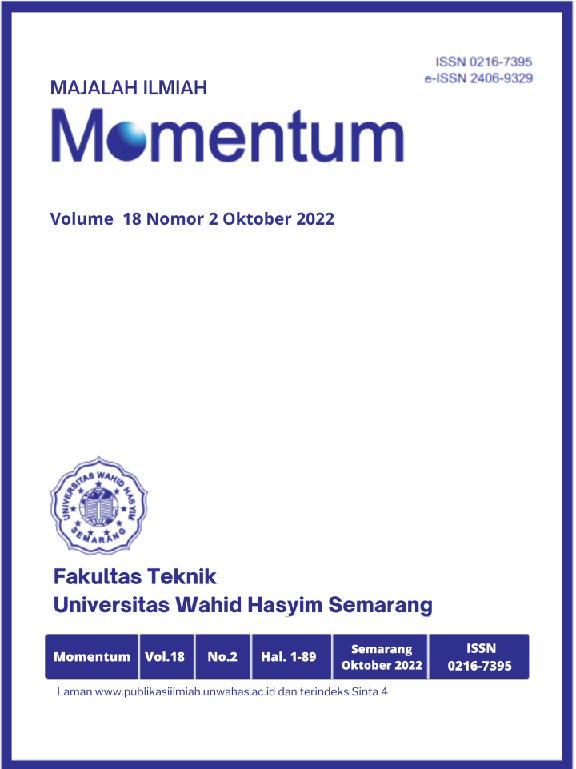Analisis Minyak Hasil Pirolisis Biomassa Limbah Aren dan Limbah Plastik Polypropylene Terhadap Kuantitas Minyak Hasil Pirolisis
DOI:
https://doi.org/10.36499/jim.v18i2.7026Abstract
Ketergantungan pada bahan bakar fosil menjadi masalah saat ini khususnya di Indonesia karena ketersediaannya yang berkurang dan sifatnya yang tidak dapat diperbarui. Salah satu bentuk energi alternatif untuk menggantikan bahan bakar fosil adalah pirolisis biomassa. Biomassa dari limbah industri tepung aren di Desa Daleman, Kecamatan Tulung, Kabupaten Klaten memiliki potensi energi yang perlu dimanfaatkan dengan mengolah limbah menjadi RDF-4. Penelitian ini bertujuan untuk mengetahui pengaruh rasio variasi RDF-4 campuran biomassa limbah aren dan limbah plastik polypropyplene (PP) terhadap kuantitas. Peneltian ini dilakukan dengan cara melakukan proses pirolisis terhadap RDF-4 campuran biomassa limbah aren dan limbah plastik PP dengan rasio komposisi 100%:0%, 75%:25%, 50%:50%, 25%:75%, dan 0%:100%.Hasil pengujian menunjukkan adanya pengaruh variasi rasio komposisi RDF-4 campuran biomassa limbah aren dan limbah plastik PP terhadap kuantitas. RDF-4 campuran biomassa limbah aren dan limbah plastik PP yang tidak dicampur dengan biomassa limbah aren dapat menghasilkan minyak pirolisis dengan kuantitas terbanyak dan cenderung memiliki kualitas yang baik. RDF-4 rasio campuran 100% plastik PP mampu menghasilkan minyak hasil pirolisis terbanyak sebesar 577,67 ml dengan suhu pirolisis tertinggi mencapai 375° C pada T1, 326,5° C pada T2, dan 336° C pada T3.Downloads
Published
Issue
Section
License
Authors who publish with this journal agree to the following terms:
The journal allow the authors to hold the copyright without restrictions and allow the authors to retain publishing rights without restrictions.
Authors retain copyright and grant the journal right of first publication with the work simultaneously licensed under a Creative Commons Attribution License that allows others to share the work with an acknowledgement of the work's authorship and initial publication in this journal.
Authors are able to enter into separate, additional contractual arrangements for the non-exclusive distribution of the journal's published version of the work (e.g., post it to an institutional repository or publish it in a book), with an acknowledgement of its initial publication in this journal.
Authors are permitted and encouraged to post their work online (e.g., in institutional repositories or on their website) prior to and during the submission process, as it can lead to productive exchanges, as well as earlier and greater citation of published work (See The Effect of Open Access).

This work is licensed under a Creative Commons Attribution 4.0 International License.

